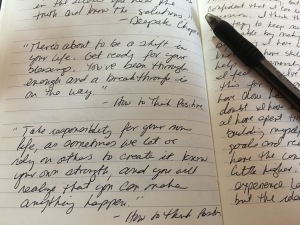
Have you ever been here? You look at your desk, and it’s piled high with unfinished projects. You also have a notebook of projects ideas you haven’t even started, but really want to. But the frustration eating at you to complete something doesn’t really give you freedom to tackle… One. More. Thing. *heavy sigh*
That’s how I used to be, until recently. Not that long ago, I realized something. I realized I had other loves other than writing. And that I worked better when I wasn’t solely focused just on writing. Instead of being stuck with one project, and only that project until it was completed, I began to mix things up.
One day, I’d work on book cover art. Another day, I might edit. And maybe a few days, I’d actually sit down to write. Some days, I even managed to do a little of everything. It’s a far cry from the old days.
I remember the days when I would work on my novel Blood Feud for weeks, months at a time, and I would not allow myself to do anything else. If I was writing, that was what I would work on, even if I didn’t feel like it. I eventually finished the book by sheer will alone, but I was exhausted and completely burned myself out of writing for a long time. Getting that book completed and published was not worth the price I paid.
Now, many writers say that’s how you get novels written. You put your butt in the seat, and you write, even if you don’t feel like it. And yes, eventually the faucet does turn on, but it feels like pulling teeth to get there. It’s damn uncomfortable, and for me, not productive considering how much time I spent just trying get myself in the mindset to write.
I have found a better way. It’s by working through inspired action. I don’t act, until I feel inspired to act. In working this way, my productivity has sky rocketed.
Continue reading “A New Way of Writing: The Magic of Inspired Action”


